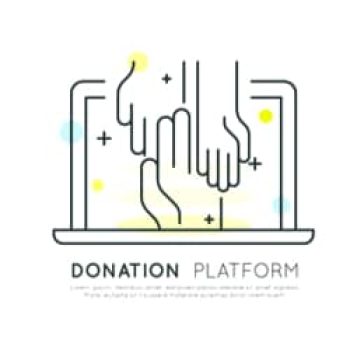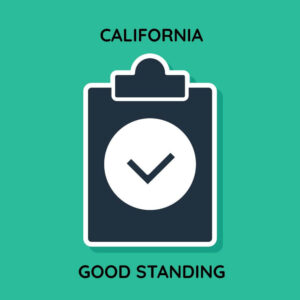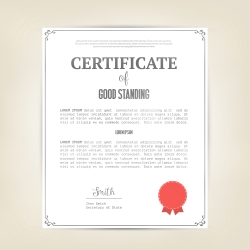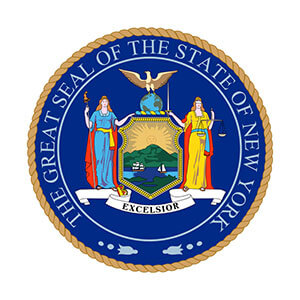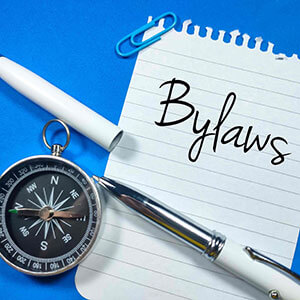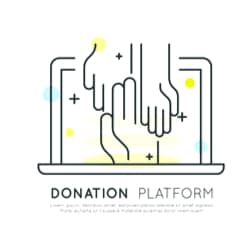What does this mean for charitable solicitation compliance?
On February 8th, California Assemblywoman Jacqui Irwin introduced Assembly Bill 488, which would establish a new statutory framework for the ever-evolving world of online charitable fundraising platforms.1
The proposed bill for “charitable fundraising platforms” and “platform charities” would require:
(1) “charitable fundraising platforms” and “platform charities” to register and provide reports to the California Attorney General’s office;
(2) conspicuous disclosures to prevent a likelihood of deception, confusion, or misunderstanding;
(3) the platform or platform charity to obtain written consent of any recipient charitable organization before using its name in a solicitation unless specific requirements are met; and
(4) the funds raised to be held in a separate bank account, and donations and grants of recommended donations to be sent promptly to recipient charities, along with an accounting of any fees imposed for processing the funds.
Key Definitions
The bill defines “charitable fundraising platform” as “any person, corporation, unincorporated association or other legal entity that uses the internet to provide an internet website, service, or other platform to persons in this state, and performs, permits, or otherwise enables acts of solicitation to occur.” Charitable fundraising platforms would likely include companies such as GoFundMe, Facebook, Amazon, Tiltify, Pledgeling, and the many other technology platforms that enable charitable giving.
“Platform charity” is defined as a trustee or charitable corporation that facilitates acts of solicitation on a charitable fundraising platform. Platform charities would likely include well-known organizations like PayPal Giving Fund and Network for Good, as well as the many other charities that serve as the intermediary and legal recipient of all donations raised through fundraising platforms.
Disclosure Requirements
If passed, the new law will require charitable fundraising platforms and platform charities to provide all of the following key disclosures to potential donors.
- A statement about who will receive the donations (e.g., that the recipient is the charitable fundraising platform, the platform charity, the recipient charitable organization, or the person engaging in peer-to-peer charitable fundraising).
- If applicable, a statement that a recipient charitable organization may not receive donations or grants of recommended donations, with an explanation identifying the circumstances under which a recipient charitable organization may not receive the funds. (Note: This disclosure relates to the “variance power” that is well-recognized in other contexts, such as donor-advised funds and fiscal sponsorships)
- The maximum length of time it takes to send the donation or a grant of the recommended donation to a recipient charitable organization with an explanation as to the length of time.
- The fees or other amounts (if any) deducted from or added to the donation or a grant of the recommended donation that are charged or retained by the charitable fundraising platform, platform charity, or any other partnering vendor, other than digital payment processing fees.2
- Whether the donation is tax-deductible or not.
Written Consent
While current California law requires that a charitable fundraising platform or platform charity obtain the written consent of any recipient charitable organization before using its name in a solicitation, the proposed law would provide that such written consent is not required if all of the following circumstances are met:
- The charitable fundraising platform or platform charity only references the recipient charitable organization’s name, address, telephone number, internet website (including through a hyperlink), employer identification number (EIN), corporation or organization number, or registration number with the Attorney General’s Registry of Charitable Trusts, classification in the National Taxonomy of Exempt Entities (NTEE) system, or other information set forth in rules or regulations established under Section 12599.10, if any. (Note that, as drafted, a recipient charity’s mission statement taken from its Form 990 cannot be included, unless written consent is obtained from that charity or the AG adopts rules to permit it. The inability to include a mission statement could potentially lead to unintended confusion by donors who are intending to support one charity and inadvertently designate their gift to benefit a different charity with a similar name but different mission)
- The charitable fundraising platform or platform charity conspicuously discloses before persons can complete a donation (or select or change a recipient charitable organization) that the recipient charitable organization has not provided consent or permission for the solicitation, and has not reviewed or approved the content generated by persons engaging in peer-to-peer charitable fundraising, when applicable. (Possible concerns remain about how this disclosure must be worded, and whether it could hamper giving by appearing to be like a “warning label”, notwithstanding the consent that may exist between a platform and a platform charity)
- The charitable fundraising platform or platform charity promptly removes any recipient charitable organization from its list or any solicitation regarding the recipient charitable organization upon written request by the recipient charitable organization.
- The charitable fundraising platform or platform charity does not require that a recipient charitable organization consent to any solicitations as a condition for accepting a donation or grant of a recommended donation.
Good Standing
Pursuant to the bill, a charitable fundraising platform or platform charity may only facilitate solicitations or the receipt of donations for the benefit of charitable organizations in good standing. “Good standing” means the platform charity or other recipient charity’s tax-exempt status has not been revoked by the Internal Revenue Service, or the California Franchise Tax Board, or is not prohibited from soliciting or operating in California by the Attorney General.
Intersection with Other Fundraiser Registration Requirements
Over the last two decades, charitable fundraising platforms have been in a regulatory gray area, as the charitable solicitation laws were established decades before the Internet was around. The existing regulatory framework in California and other states covers professional fundraisers (e.g., telemarketers), fundraising counsels (e.g., direct mail companies), and commercial co-venturers (e.g., retail businesses advertising that sales or use of their goods or services will benefit a charitable organization). Many states require contracts between a regulated fundraiser and a charity to be submitted or at least disclosed, and separate campaign reports to be filed per contract (some forms even require two original notarized charity signatures!).
Most fundraisers that fall into the existing regulated categories do not support the fundraising efforts of hundreds or thousands of charities simultaneously, so compliance, while somewhat burdensome, is generally manageable. Most new fundraising platforms, however, aim to assist hundreds or thousands of charities in broadening their fundraising reach through new innovative methods of giving. If a platform provider is required to file hundreds or thousands of contracts and campaign reports, these reporting burdens would most likely hamper innovation and, ultimately, severely limit donations to thousands of charities, large and small.
The proposed regulations for charitable fundraising platforms provide a streamlined approach that is more appropriately suited to the way in which charitable fundraising platforms work. The bill recognizes the potential overlap between the new “charitable fundraising platform” category and the three existing fundraiser categories, and explicitly carves out “charitable fundraising platforms” from the definition of commercial fundraiser, fundraising counsel and commercial co-venturer “when the acts of solicitation for charitable purposes occur solely through an internet service, website, or other platform provided by the charitable fundraising platform.”
While many charitable fundraising platforms will not need to comply with inconsistent or duplicative requirements applicable to the other regulated fundraiser categories, the limited scope of the carveout could still cause many fundraising platforms to remain subject to the additional regulatory requirements of other fundraiser categories. For example, what if a platform sends an email about a specific campaign conducted on the platform to individuals who have signed up to receive communications? What about a social media post? Exactly how these definitional carveouts are finalized and implemented will significantly affect the amount of the compliance obligations applicable to charitable fundraising platforms.3
The passage of Assembly Bill 488 will not resolve the ambiguity in other states’ charitable solicitation laws and their applicability to charitable fundraising platforms. However, given the various states’ interest in providing oversight to these new technology-driven fundraising platforms, there is a good chance that other states may follow suit in adopting similar legislation.
Stakeholder Engagement
Assemblywoman Irwin and the California Attorney General’s office have been actively engaging with various stakeholders in the community in the development of this legislation (which has included associations of nonprofits and fundraisers, including The Nonprofit Alliance and the California Association of Nonprofits, as well as various fundraising platforms and platform charities) to ensure that innovation in charitable giving is encouraged within a framework of oversight and transparency.
In Conclusion…
The new bill is, in many respects, a much-needed update to the existing fundraising regulatory framework that more appropriately reflects the nature of charitable fundraising and giving in the age of the Internet. However, the final codification of the legislation could have significant regulatory implications on the charitable fundraising community, so our firm is paying close attention to the bill as it makes its way through the legislative process.
1 Since 2018, Assemblywoman Irwin has introduced several bills that would govern charitable fundraising platforms, including Assembly Bills 2556 (2018), 1539 (2019), and 2208 (2020). Among the comments submitted as part of the legislative process for Assembly Bill 2208, the National Association of State Charity Officials submitted a statement of support: “The National Association of State Charities Officials (NASCO) is an association of state offices (attorneys general, secretaries of state and other offices) charged with the regulation and oversight of charitable organizations and charitable solicitation in the United States. As state regulators, we have witnessed the impact of the internet on charitable fundraising over the past 20 years. Charitable fundraising is no longer limited to solicitations through telephone, direct mail, or even a charity’s own website. Fundraising through third party websites, social media apps, and live video streaming have become the norm. The sheer volume of charitable solicitations made through online fundraising has exploded; most recently, for solicitations concerning the COVID-19 and the civil rights crises. This issue is so important that NASCO has formed a working group to look at the breadth of charitable giving through the internet, the regulatory and enforcement challenges this presents, and the need for states to address it [… ] NASCO believes that these issues require a legislative solution to protect charities and the public, and to provide the platforms with a regulatory scheme that fit their business model. Assembly Bill 2208 represents a thoughtful and comprehensive approach to address these problems.”
2 While transparency around fees assessed is critically important in promoting trust in fundraising and avoiding deceptive solicitation violations, there may be constitutional implications depending on exactly how this disclosure requirement is ultimately codified. In a series of four cases from 1980 (Schaumburg) to 2003 (Madigan), the U.S. Supreme Court consistently held that regulation based upon fees paid to fundraisers violate First Amendment rights. In particular, Riley v. National Federation of the Blind of North Carolina, 487 U.S. 781 (1988), invalidated a requirement that fundraisers disclose at the point of solicitation the percentage of funds they raised in the past year which went to the charity. The Court found such “compelled speech” to improperly burden protected speech (i.e., a fundraising solicitation). 487 U.S. at 798. This mandatory financial disclosure requirement was found to be overbroad and not justified by the state’s interests in informing donors or prohibiting fraud. The Court determined that “the compelled disclosure will almost certainly hamper the legitimate efforts of professional fundraisers to raise money for the charities they represent.” 487 U.S. at 799. Since then, most state charitable solicitation laws require fundraisers to disclose their fees upon request of any donor. Given the online nature of charitable fundraising platforms, a balance may need to be struck between the constitutional concerns of compelled speech and the need for transparency in an online context. One option is to permit such fees to be disclosed within a conspicuous hyperlink. The bill, as introduced, permits certain of the required disclosures to be included in a conspicuous hyperlink, but this fee disclosure is currently not among them.
3 Consider that a professional fundraiser that registers in 40 states and has national contracts with 100 charities would have to file up to 8,000 separate filings each year! (That number is based on one contract/solicitation notice and one campaign report per contract per state x 40 states per year) While the exact reporting that will be required under Assembly Bill 488 and related regulations to be established by the California Attorney General’s office is still to be determined, I anticipate it will be a much more streamlined reporting process that will not require separate per-charity filings. The bill does not require each charity contract to be filed either, as is required of other types of fundraisers, although contracts must be available for inspection by the Attorney General. To minimize the compliance burdens of the current regulatory framework, one solution that has been adopted is for a fundraising platform that registers as a professional fundraiser to partner with a single platform charity so that there is only one professional fundraiser relationship – the relationship between the fundraising platform and the platform charity.
- Karen l. Wuhttps://perlmanandperlman.com/author/karenwu/
- Karen l. Wuhttps://perlmanandperlman.com/author/karenwu/
- Karen l. Wuhttps://perlmanandperlman.com/author/karenwu/
- Karen l. Wuhttps://perlmanandperlman.com/author/karenwu/


